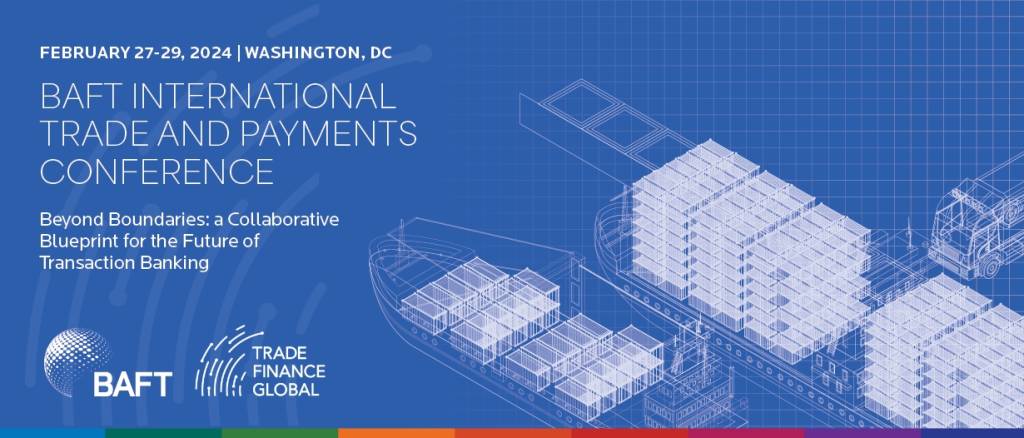Global economic prospects remain tempered and are surrounded by uncertainty, as highlighted in the newest Chief Economists Outlook released today during the start of Davos.
The Honourable Mary Ng, Minister of Export Promotion, International Trade and Economic Development, has announced that Export Development Canada (EDC) surpassed its own expectations by providing over $12 billion in support to cleantech businesses in 2023.
BAFT, the leading global financial services association for international transaction banking, has published a new white paper titled “ISO 20022 Migration: Lessons Learned”.
While it comes with many business benefits, engaging in trade with nations around the world can be a complex process. As a result, it may be tempting to pay your invoices in GBP which, at face value, may seem like a simpler and more beneficial option – but this often isn’t the case.
Despite expectations for a slight increase in the trade deficit, it narrowed to $63.2 billion, a decrease from the revised figure of $64.5 billion in October, according to the United States Commerce Department.
Over the past years, international trade has been challenged by various factors. According to the 2023 Digital and Sustainable Trade Facilitation Global Report, while global merchandise trade volumes in 2021 displayed a strong recovery from the contraction suffered in 2020 due to COVID-19, trade growth slowed down in 2022.
MUFG has structured a €1.2 billion financing package to enable institutional capital investors and syndicate lenders to collaboratively contribute a €1.247 billion financing package. This funding will facilitate Turkey’s construction of a new high-speed electric railway in the Ankara region, thus opening up valuable export opportunities for the UK and other nations.
BAFT has announced the 2024 International Trade and Payments Conference, set to take place from 27-29 February 2024, in Washington, D.C.
Sustainability is one of the most used terms in the trade finance industry in 2023. While everyone knows what it means, and most know what the challenges are behind implementing sustainable actions, there is a clear issue with implementing tangible solutions.
As we bid farewell to 2023, it’s time to reflect on the dynamic landscape of global trade and finance. At Trade Finance Global (TFG), the past year has been marked… read more →
























